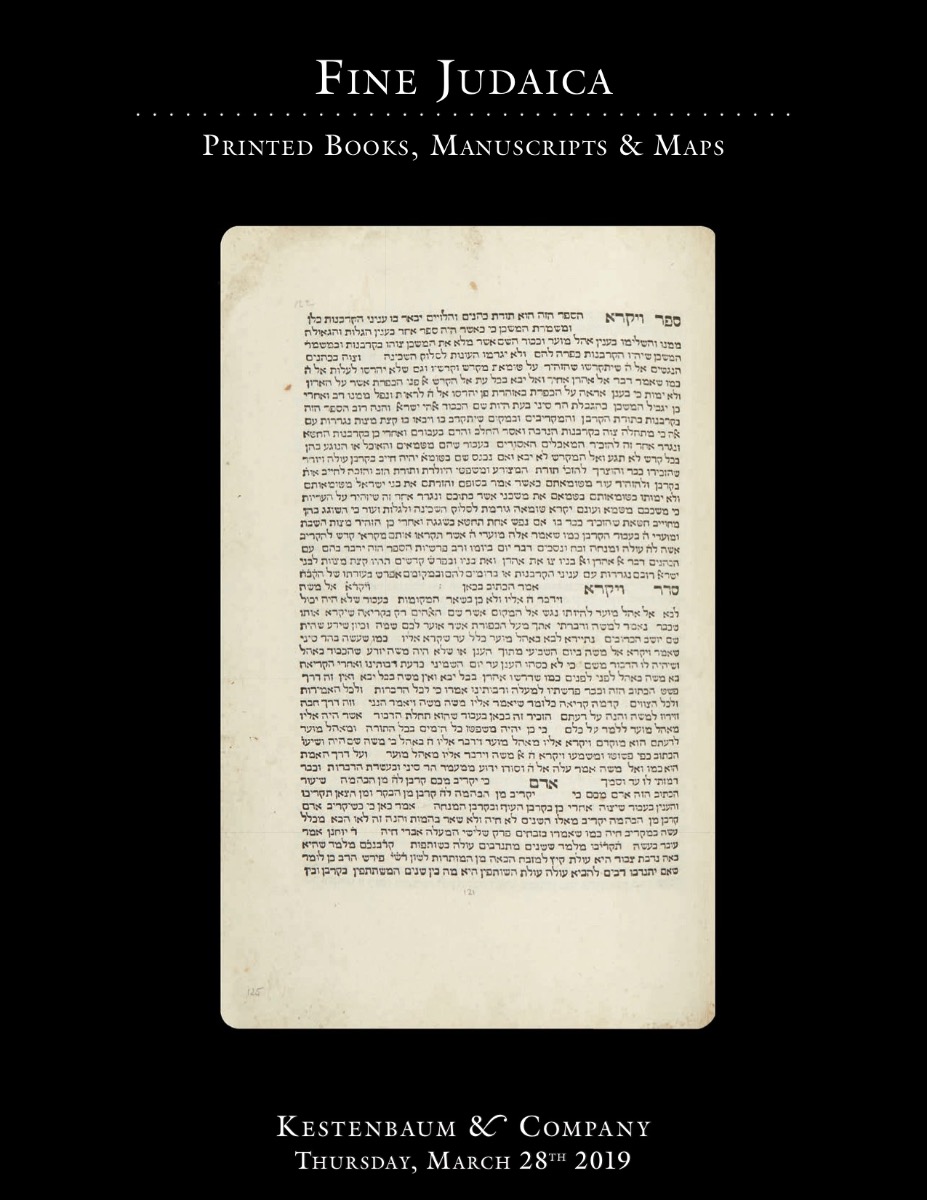Sepher Ha’Ikarim [“Book of Fundamental Principles”]

AUCTION 80 |
Thursday, March 28th,
2019 at 1:00 PM
The Valmadonna Trust Library: Further Selections from the Historic Collection. * Hebrew Printing in America. * Graphic & Ceremonial Art
Lot 31
ALBO, YOSEPH
Sepher Ha’Ikarim [“Book of Fundamental Principles”]
Soncino: Joshua Solomon Soncino 1485
Est: $50,000 - $60,000
<<COMPLETE COPY OF ALBO'S CLASSIC OF JEWISH THEOLOGY.>> Includes the rare first leaf containing Soncino's introduction and ff. 56-58 which are habitually lacking entirely in most copies - indeed a previous owner states in pencil on the inside covers of this volume that this is the only known complete copy.
Joseph Albo’s philosophical exposition proceeds from the view that every religion is founded upon three basic principles: The existence of God, Revelation and reward and punishment. True faith, according to Albo, is that which recognizes not only the roots of these three fundamental principles, but also their logical consequences. The goal of man lies in perfecting himself, and the way of human perfection according to Albo, lies in striving to become similar to the supreme symbol of perfection - God. This can be achieved by doing good derived by love for God through the loving fulfillment of His will and commandments. Albo also deals here with the terrors of the imminent catastrophe about to befall Spanish Jewry. He interprets suffering as “chastisements of love” imposed as a trial which only serves to strengthen the bond of love between God and Israel. As long as Israel cleaves to God’s ways, they may not lose hope that the day of Redemption will come. For a brief examination of Albo’s philosophies and the thinkers upon whose ideas he built, see Zinberg, vol. III pp. 233-9.
The anonymous typesetter ("HaTalmid Hameshareth") was so enthused by this work that he ended the colophon with the paraphrase: "Ki MeZion Teitze Torah UDevar Hashem MeSoncino."
Perhaps a measure of the literary value of Sepher Ha’Ikarim is the fact that it was published only a mere half-century following the author’s passing. See EJ, Vol. II, col. 535.
